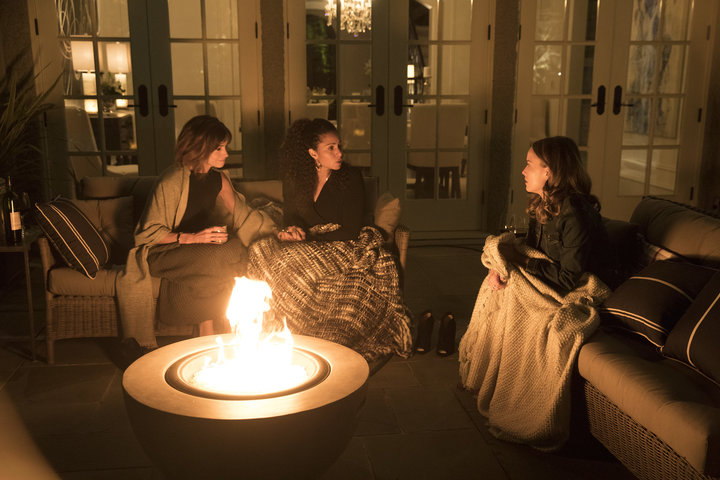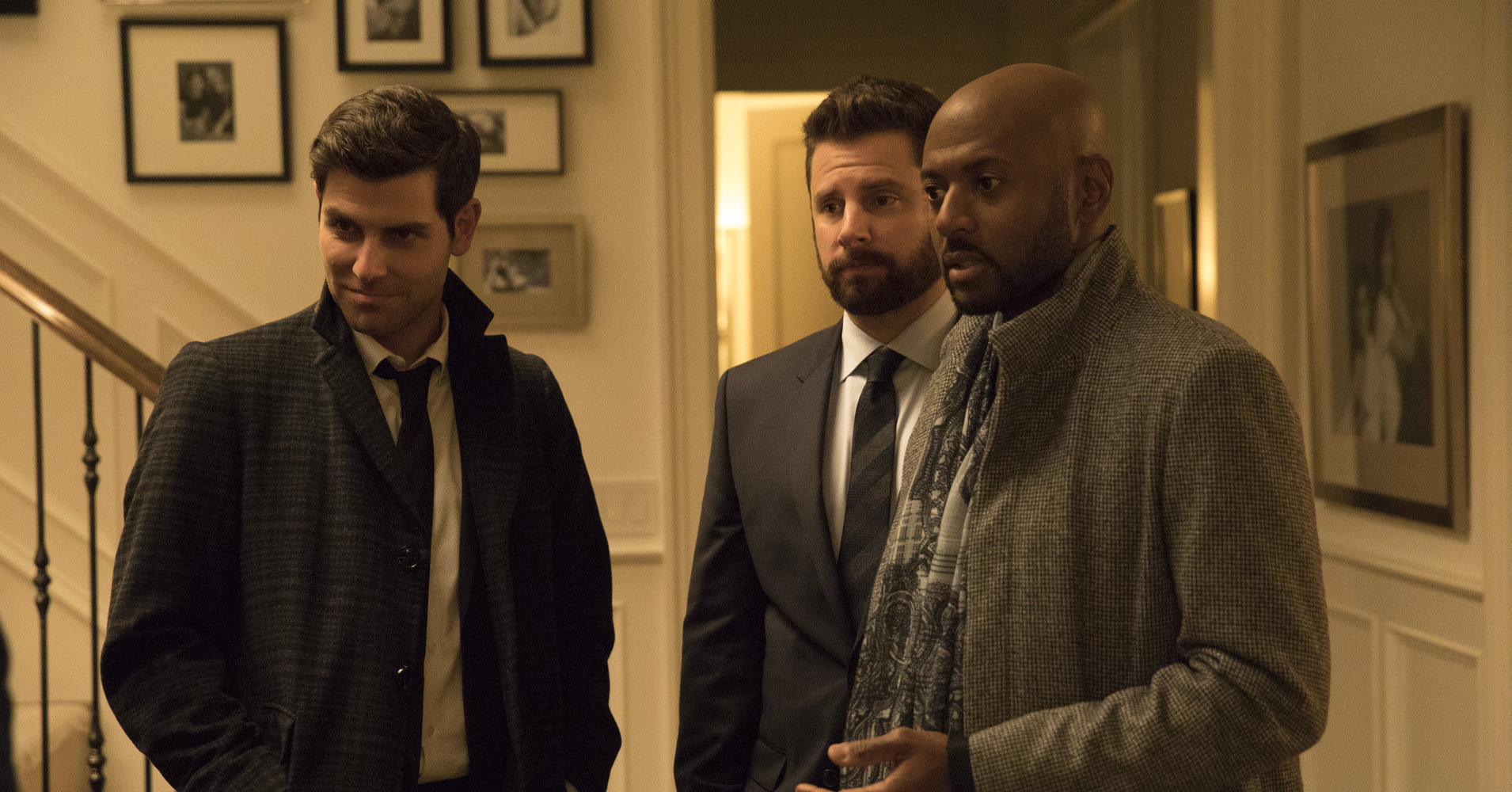[ad_1]
August is a big month for me and the American Broadcasting Co. I spend four-plus hours of prime time every week watching the network’s summer reality hit “Bachelor in Paradise” and am therefore held helplessly immobile in the path of a fall melodrama promotional firehose. By September, I dream in lines from “The Good Doctor” trailers.
People in these shows are, apparently, always saying things like “Life is made up of everything” or “Hope … happens for a reason” or walking in slow motion through emergency rooms amid the throb of an acoustic rendering of Hozier’s “Take Me to Church.” Every terrible tragedy is also, somehow, the most life-affirming moment. Hallmark card copy is the medium; that you’re left in floods of tears is the message.
The trend in this direction has clearly been exacerbated by the runaway success of crockpot-safety PSA “This Is Us” on NBC, a time-hopping ensemble tearjerker that every network must now replicate in order to save television from the inexorable advance of superior technologies.
As I learned (and learned and learned) this summer, ABC’s answer to “This Is Us” will be an ensemble drama called “A Million Little Things.” This show centers on four friends ― Jon (Ron Livingston), Gary (James Roday), Rome (Romany Malco) and Eddie (David Giuntoli) ― who met when trapped in an elevator together a decade ago and discovered they were all Boston Bruins fans. Their shared fandom and season tickets have kept them together ever since. That is, until Jon kills himself, leaving his friends and family reeling.
Jon was what a sports bro might call the group’s glue guy. A Harvard graduate, real estate mogul and perpetual deal closer, he persuaded the other three elevator strangers to sign on to annual season tickets. He drives their wives to the hospital when they’re in labor. He helps them get out of bad leases. He demands the floor at hockey games to give meandering, trite toasts about how friendship is “a million little things,” things like talking about stuff and helping one another. Even after his death, he’s omnipresent in the show, thanks to frequent flashbacks to times when he treated his friends to entire pearl strings of his wisdom. In these scenes, his demeanor with them is a blend of best friend, father and religious leader.
His bereaved wife, Delilah (Stephanie Szostak), and friends spend the pilot groping for an explanation for why this husband, father and successful businessman would be suicidal and why none of them knew. “Jon, you say everything happens for a reason,” Eddie chokes out in his eulogy. “I can’t find a reason for this.”
“Reason” functions two ways in this pilot, both of them concerning. First, that there must be a clear reason ― a dark secret, a hidden betrayal ― that led Jon to his fate. Second, that there must be a cosmic reason ― a purpose, a greater good ― behind such a tragic thing happening at all.
For the former, suffice it to say that suicidal ideation is rarely simple or reducible to one reason such as a straightforward wrong done to someone. As for the latter, it’s rank smarm, after-school-special pablum that seeks to imbue needless suffering with nobility and casts the dead and hurting as sacrifices offered up for the benefit of, well, the rest of us.

ABC / Jack Rowand
“A Million Little Things” is, as advertised, a no-holds-barred tearjerker. It makes copious use of silent slow motion for dramatic moments, such as Jon’s assistant screaming as she witnesses him jump from a balcony and Delilah dropping her coffee when she hears of his death. The script is riddled with portentous clichés about fate and friendship, salted only by the aggressively wry irreverence of bad boy Gary, which somehow felt even more nakedly manipulative, a cunning deployment of humor and “realness” to heighten the pathos of everything else. I cried several times during the pilot, resenting every salty drop that these tactics wrung from me. They felt cheap. I didn’t want to lend the approval of my tears to a show about how a man’s suicide could actually be a great wake-up call for his friends.
But yeah, the rest of these dudes certainly need help. One of them is about to swallow a mouthful of pills when he gets the call that Jon has died. Another is in bed with his mistress. Jon was the one who had appeared to have his shit together ― now, maybe (??) his shocking death will save them.
Eddie, the most contemptible of the trio, we meet wallowing in the agony of being married to a beautiful, successful attorney, Katherine (Grace Park), who makes him order Indian takeout for dinner even though he’s “from Milwaukee” and he’s not built to “eat that much vindaloo.” The rest of the time, he appears to plink on his guitar, teach the occasional lesson and lounge in bed with his lover, while his spouse whirls around being a kickass professional, looking gorgeous and ferrying their young son thither and yon. He is presented as the victim of a toxic marriage. I want better for Katherine.
Gary, who is in remission from breast cancer (his condition leads, unfortunately, to many lol-boobs-are-girl-parts jokes in the pilot), has been fucking his way through support groups packed with almost exclusively women. Beneath his impish bravado, he’s battered by fear and pain, which have left him jaded about questions like whether his friends even know his eye color (magnificent hazel) and whether anything really happens for a reason ― especially something as horrible as a friend’s sudden suicide. He rails against the idea that Jon’s death could have a reason, like to teach them all to live their lives to the fullest. He doesn’t want to turn the loss of his friend into a teachable moment.
Rome and Eddie disagree. Rome, a happily married advertising director haunted by his failed filmmaking ambitions, notes that he would probably have died from the overdose he’d been about to attempt had he not been interrupted by the news about Jon. The logic of this, which I will lay out as plainly as possible, is that Jon’s death may indeed have had a greater purpose, which was to save Rome from dying.
To suggest that one friend would have died of suicide that day and that Jon unwittingly saved his friend’s life with his own reads like a contrived riddle ― the Trolley Problem: Suicide Edition. (In reality, suicide can actually be contagious.) It’s a cynical artistic choice to engineer a sad but also perversely beneficial suicide, one that the universe somehow needs in order to maintain balance.
But it’s hard not to suspect, even at this early stage, that the show is on Rome and Eddie’s side in this debate. While this doesn’t glamorize suicide in the way that “13 Reasons Why” was accused of doing, it manages to cast Jon’s death in a hazily noble role. This, of course, is merely the pilot. “A Million Little Things” could be charting a long course that ultimately bends toward doing justice to subjects like grief, illness and depression. If so, it will need to abandon or subvert the theme, already pounded home with sledgehammer-level force, that such a tragedy happens for either a simple cause or a greater reason.
Thus far, “A Million Little Things” shows every sign of belonging to a moral universe in which suicide has a beautiful silver lining, which is everyone else spending more time with their buddies. Worth it? Let’s see what the show concludes about that.
[ad_2]
Source link

